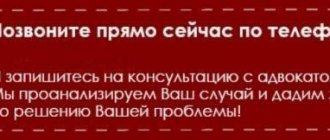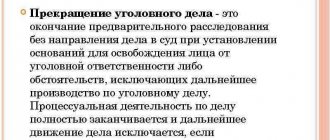1. The right to appeal a court decision belongs to the convicted, acquitted, their defenders and legal representatives, the state prosecutor and (or) a higher prosecutor, the victim, the private prosecutor, their legal representatives and representatives, as well as other persons to the extent that the appealed court decision the decision affects their rights and legitimate interests.
2. A civil plaintiff, a civil defendant or their legal representatives and representatives have the right to appeal a court decision insofar as it relates to the civil claim.
Commentary on Article 389 of the Code of Criminal Procedure of the Russian Federation
1. The situation provided for in this article may arise if the cassation appeal of the convicted person, his defense attorney or legal representative, as well as the victim or his legal representative, filed through the court of first instance or appeal in compliance with the 10-day period for appealing the verdict, was for some reason was detained and did not reach the cassation court on time, or the deadline for a cassation appeal was missed, but was reinstated by the court that passed the verdict due to valid reasons.
2. Re-examination of a criminal case by a court of cassation is possible only upon a complaint from the convicted person, his defense attorney or legal representative, as well as the victim or his legal representative, but not on the proposal of the prosecutor.
3. If, during the re-examination of the case, the cassation instance adopts a new ruling that contradicts the one made earlier, a situation arises when two cassation decisions exist simultaneously and have entered into legal force. This conflict can only be resolved if one or another of these decisions is appealed through the supervisory procedure.
Article 389.6 of the Code of Criminal Procedure of the Russian Federation. Appeal, presentation
Code of Criminal Procedure>PART THREE of the Criminal Procedure Code of the Russian Federation. JUDICIAL PROCEEDINGS >Section XIII of the Code of Criminal Procedure of the Russian Federation. PROCEEDINGS IN THE COURT OF SECOND INSTANCE >Chapter 45.1 of the Code of Criminal Procedure of the Russian Federation. PROCEEDINGS IN THE COURT OF APPEALS >Article 389.6. Appeal, presentation
1. An appeal or presentation must contain:
1) the name of the appellate court to which the complaint or presentation is filed;
2) information about the person who filed the appeal or presentation, indicating his procedural status, place of residence or location;
3) an indication of the verdict or other court decision and the name of the court that decided or issued it;
4) the arguments of the person who filed the appeal or presentation, indicating the grounds provided for in Article 389.15 of this Code;
5) a list of materials attached to the appeal or presentation;
6) signature of the person who filed the appeal or presentation.
1.1. The person who filed the appeal or presentation, in support of the arguments presented in the complaint or presentation, has the right to file a petition for the court of appeal to examine the evidence that was examined by the court of first instance, which must be indicated in the complaint or presentation, and provide a list of witnesses, experts and others persons subject to summons for this purpose to the court hearing. If a request is made to examine evidence that was not examined by the court of first instance (new evidence), then the person is obliged to justify in the appeal or presentation the impossibility of presenting this evidence to the court of first instance.
2. The appeal of a person not participating in the criminal case must indicate what rights and legitimate interests of this person were violated by the court decision.
3. If a convicted person applies for participation in the consideration of a criminal case by an appellate court, this is indicated in his appeal or in objections to complaints and submissions brought by other participants in the criminal process.
4. If the appeal or presentation does not comply with the requirements established by parts one, one.1 and second of this article, which prevents the consideration of the criminal case, the appeal or presentation is returned by the judge, who sets a deadline for their re-drafting. If the judge’s requirements are not met and the appeal or presentation is not received within the time limit set by the judge, they are considered not filed. In this case, the verdict or other appealed court decision is considered to have entered into legal force.
< Article 389.5. The procedure for restoring the period for appeal
Article 389.7. Notice of brought appeal, presentation >
Another comment on Article 389 of the Code of Criminal Procedure of the Russian Federation
1. The commented article resolves an issue that arose long before the onset of those changes in the country in which courts currently exercise judicial power in criminal cases. Three decades ago, the Plenum of the USSR Supreme Court, in Resolution No. 10 of December 17, 1971 “On the practice of courts considering criminal cases in cassation,” explained to the courts that in cases where, for some reason, cassation complaints or protests against some convicts are filed within the prescribed period, will be received after the consideration of the case in relation to the remaining convicted persons or when this period is restored, as well as in cases where a cassation appeal of the convicted person or his defense lawyer is received after the consideration of the case on a cassation protest or a cassation appeal of another participant in the process in relation to the same convicted person, the cassation court is obliged to forward the case to the chairman of the court, who is authorized to lodge a protest in the manner of supervision, so that the ruling is canceled, and all complaints and protest are considered by the cassation court simultaneously (Sb. post. Plenumov. Spark. P. 85).
2. Despite all the importance for the formation of judicial practice, the explanations given by the Plenum of the USSR Supreme Court should be recognized that the Plenum nevertheless exceeded its powers, creating, under the guise of a resolution, actually a norm of criminal procedural law, trying to fill the gap that existed in the Code of Criminal Procedure of the RSFSR. Now the provision contained in Part 1 of the commented article is a full-fledged rule of law adopted by the country’s legislative body.
3. It is quite logical that Part 2 of the commented article establishes the obligation of the court to explain to the participants in criminal proceedings the right to appeal in the manner of supervision of a newly issued ruling of the cassation court.
Commentary on Article 389.1 of the Code of Criminal Procedure of the Russian Federation
1. The general concept of this chapter corresponds to the legal position of the Constitutional Court of the Russian Federation, expressed in its Resolutions dated 02/05/2007 N 2-P and dated 05/16/2007 N 6-P, according to which errors made by the court of first instance are subject to correction by the court of second instance in the procedures , closest to the proceedings in the court of first instance. An appeal (from the Latin apellatio - appeal, appeal) is understood as a review, as a rule, of criminal cases on the merits by a higher court, i.e. on both legal and factual grounds, but within the limits of the complaints filed by the parties. The appellate instance may, in full or in part, conduct a new judicial investigation in the case in the conditions of a competition between the parties and pronounce a new verdict, replacing the verdict of the lower court. Appeal proceedings provide an additional guarantee of justice through the review of a criminal case by a higher authority, whose judges, as a rule, have more experience and qualifications than judges of a lower court. It has traditionally been held that appeal is most useful where the case is heard at first instance by a single judge, although this rule is now increasingly being revised. For example, in the modern Anglo-American, as well as French (and now, according to paragraphs 2 - 4 of Article 389.15 and Article 389.27, and in the Russian) process, decisions of courts with the participation of jurors are also subject to appellate review, which could would be considered fair if such a review did not affect the essence of the jury's verdict, but concerned only issues of application of law. However, in fact, this contradicts the very essence of the appeal form and is a sign of cassation. The disadvantages of the appellate form of review of judicial decisions usually include the right to selectively conduct judicial investigative actions, which can be compared to studying the case materials, so to speak, “in a distorting mirror,” because directly heard testimony may look more convincing than those whose contents judges understand only from interrogation records. If the appellate court, in order to save time, either because the case seems to be completely clear, or for some other reason, completely refuses to conduct a judicial investigation, then the result of such simplification will inevitably be that a new verdict will be passed on the basis of written materials alone, i.e. .e. will be the fruit of “armchair justice”. But this actually completely devalues all the hard and useful work on the direct examination of evidence that the court of first instance performed, and cannot at all be conducive to establishing the truth in the case.
2. Another danger that awaits the appellate review procedure due to the similarity of its forms with proceedings in the courts of first instance is the low throughput of the relatively few higher courts in comparison with the volume of cases that passes through the lower courts, the number of which, naturally, is many times greater more. This does not matter much when the number of appeals is small, that is, if the trial courts work well. It’s another matter when, in most cases, the decisions of the courts of first instance are appealed. Then the appellate instance must either redo the significant amount of work that was previously performed by the courts of first instance, which for obvious reasons is hardly possible, or practically refuse to carry out investigative actions in court proceedings and decide cases solely on the basis of the written materials presented, which is what the dispatch does justice in the courts of first instance in vain. In Russia, a very significant portion of sentences and other court decisions are appealed <1>. Therefore, it can be assumed that the introduction of an appellate form of review risks turning the procedure for verifying judicial acts, at best, into a semblance of a modern cassation, and at worst, into a purely formal bureaucratic action. The latter, in our opinion, is even more likely, because both the previous and the current cassation, given the limitations of its ability to establish the truth when checking decisions based primarily on written materials, did not attempt to pass new sentences (although they can change them), and the new The appeal, despite its predictable actual limitations in its ability to directly examine evidence, is nevertheless endowed with such a right. At this point, the parties’ possibilities for appealing the verdict on issues of fact will virtually be almost exhausted, since the new cassation and supervision will deal only with the grounds for review, consisting mainly of violations of the rule of law, and all supervision will be concentrated in a single instance - the Supreme Court of the Russian Federation. In addition, for these authorities only a permitting procedure is provided for accepting a complaint for consideration (Articles 401.8, 412.5). Thus, it may turn out that the entire potential of the parties to appeal the factual validity of decisions of the courts of first instance, i.e. first of all, on the most important issue of guilt, will be almost entirely exhausted at the local level, which is unlikely to provide sufficient protection of the rights of citizens who will now have nowhere to seek salvation from the possible arbitrariness of local authorities.
——————————— <1> According to the Judicial Department of the Supreme Court of the Russian Federation, in the first half of 2010, a total of 293.4 thousand criminal cases were submitted to the district courts of the Russian Federation at first instance for consideration . During the same 6 months of 2010, 166.8 thousand criminal cases were submitted to the regional courts for cassation consideration. Thus, decisions in 56.85% of cases were appealed.
As we have already noted above, the classic appeal form is appropriate mainly in those judicial and legal systems where the courts of first instance work effectively and their decisions do not cause numerous complaints. This, in turn, depends on the quality of the work of the preliminary investigation authorities in preparing materials for the court, as well as, ultimately, on the general state of law and order. Where these conditions have not been created, verification of court decisions on issues not only of law, but also of fact should be the direct responsibility of the entire vertical of verification courts, and not just appeals, which, unfortunately, this reform does not imply.
Commentary on Article 389.15 of the Code of Criminal Procedure of the Russian Federation
1. When considering a criminal case on appeal, the court, regardless of the arguments of the complaint or presentation, checks whether there are grounds for reversing or changing the court decision provided for in the commented article that do not entail a worsening of the situation of the convicted (acquitted).
Having established the existence of such grounds, the appellate court, by virtue of the provisions of Parts 1 and 2 of Art. 389.19 of the Code of Criminal Procedure cancels or changes the court decision in relation to all convicted persons who are affected by the violations committed, regardless of which of them filed a complaint and against whom an appeal or presentation was made <1741>. ——————————— <1741> See: Resolution of the Plenum of the Supreme Court of the Russian Federation dated November 27, 2012 N 26 “On the application of the norms of the Criminal Procedure Code of the Russian Federation governing proceedings in the court of appeal” // Bulletin of the Supreme Court of the Russian Federation. 2013. N 1.
2. On the grounds provided for in the commented article, only an illegal or unfounded sentence can be overturned.
3. The new evidence received by the appellate instance, as well as the additional materials presented, are subject to evaluation in conjunction with all other materials of the case and can be used as the basis for the decision of the appellate instance to cancel the sentence with a new sentence, as well as to change the sentence of the court of first instance.
4. A typical situation for the grounds for reversing or changing a court decision, which is discussed in paragraph 1 of the commented article, is characterized by non-examination of evidence (refusal to satisfy a request to interrogate certain persons, to conduct an inspection of the area, etc.), which in together with other evidence were extremely important for the correct establishment of the factual circumstances of the case and could significantly influence the court’s conclusions about the legal qualification of the actions of the perpetrators and their responsibility.
5. In addition to those listed in Art. 389.17 of the Code of Criminal Procedure, significant violations of the criminal procedural law that influenced or could influence the decision of a legal, reasonable and fair sentence are:
1) failure to deliver or untimely delivery to the accused of a copy of the indictment or indictment, except in cases where the court recognizes as legal and justified the decision of the prosecutor made in the manner established by Part 4 of Art. 222 Code of Criminal Procedure;
2) failure by the magistrate to make a decision to involve a person as a civil defendant (recognizing him as a victim, civil plaintiff, or their representative) and failure to explain his rights <1742>; ——————————— <1742> See: Determination of the Judicial Collegium for Criminal Cases of the Supreme Court of the Russian Federation dated August 5, 1993, Determination of the Military Collegium of the Supreme Court of the Russian Federation dated February 9, 1995, etc. // Bulletin of the Supreme Court of the Russian Federation. 1994. N 2 and others.
3) cancellation of the legally adopted decision of the investigator to recognize the citizen as a victim and the decision to consider him a witness <1743>; ——————————— <1743> See: Determination of the Military Collegium of the Supreme Court of the Russian Federation dated March 7, 1995
4) deprivation of the victim of the opportunity to participate in the court hearing <1744>; ——————————— <1744> See: Resolution of the Presidium of the Vladimir Regional Court dated June 13, 1997 // Bulletin of the Supreme Court of the Russian Federation. 1997. N 11.
5) depriving the accused of the opportunity to familiarize himself with the protocol of the court session and bring his comments to it <1745>; ——————————— <1745> See: Resolution of the Presidium of the Pskov Regional Court dated January 4, 1994 // Bulletin of the Supreme Court of the Russian Federation. 1994. N 6.
6) conducting a trial without the participation of a defense attorney, when his actual participation was not actually ensured, and the case does not contain information about the summons of the defense attorney to the court hearing and the reasons for his failure to appear;
7) conducting a preliminary investigation based on materials separated from another case into separate proceedings against another person on a new charge without initiating a criminal case;
conducting a preliminary investigation in all other cases without initiating a criminal case;
9) failure to establish a circumstance subject to proof in the case of a crime under Part 1 of Art. 115 of the Criminal Code, - the nature of bodily injuries caused to the victim, the source of evidence provided for by law - the mandatory conclusion of a forensic expert <1746>; ——————————— <1746> See: Review of judicial practice of the Supreme Court of the Russian Federation for the III and IV quarters of 1996 // Bulletin of the Supreme Court of the Russian Federation. 1997. N 4.
10) conducting an investigation by the person subject to recusal;
11) completion of the investigation in the form of inquiry into a crime for which a preliminary investigation is mandatory;
12) the absence in the case of a resolution to schedule a court hearing <1747>; ——————————— <1747> See: Determination of the Judicial Collegium for Criminal Cases of the Supreme Court of the Russian Federation dated October 20, 1994 // Bulletin of the Supreme Court of the Russian Federation. 1995. N 1.
13) failure to issue a ruling to refuse to satisfy the victim’s request to order a forensic examination <1748>; ——————————— <1748> See: Determination of the Judicial Collegium for Criminal Cases of the Supreme Court of the Russian Federation dated March 17, 1992 // Bulletin of the Supreme Court of the Russian Federation. 1993. N 2.
14) failure to comply with the requirements of clause 3, part 1, art. 308 of the Criminal Procedure Code on the obligation to indicate in the operative part of the sentence not only the parts and articles of the Criminal Code, but also the relevant points for which the defendant was found guilty <1749>; ——————————— <1749> See: Review of judicial practice of the Supreme Court of the Russian Federation for the second quarter of 1996 // Bulletin of the Supreme Court of the Russian Federation. 1997. N 3.
15) drawing up a sentence not in full, except for the cases provided for in Part 7 of Art. 241 of the Code of Criminal Procedure, and in this regard the proclamation of only the introductory and operative parts of the sentence or only its operative part <1750>; ——————————— <1750> See: Resolution of the Plenum of the Supreme Court of the Russian Federation dated April 29, 1996 No. 1 “On the judicial verdict” // Ibid. P. 162.
16) the presence in the minutes of the court session of a large number of corrections (erasures) and crossed out testimony of at least one witness, which are essential for assessing the evidence in the case <1751>. ——————————— <1751> See: Determination of the Judicial Collegium for Criminal Cases of the Supreme Court of the Russian Federation dated June 9, 1993 // Bulletin of the Supreme Court of the Russian Federation. 1993. N 11.
6. According to Art. 382 of the Code of Criminal Procedure the following violations are recognized as incorrect application of the criminal law:
1) violation of the requirements of the General Part of the Criminal Code;
2) application of the wrong article or the wrong paragraph and (or) part of the article of the Special Part of the Criminal Code that were subject to application;
3) imposition of a punishment more severe than that provided for in the relevant article of the Special Part of the Criminal Code.
7. An example of a violation of the requirements of the General Part of the Criminal Code is the failure to apply a suspended sentence when there were grounds for it, or an unfounded decision on a suspended sentence.
8. If the court of first instance applies an amnesty to a convicted person to whom it should not be applied, the appellate instance, in the presence of an appeal from the prosecutor or an appeal from the private prosecutor, the victim or their legal representatives and (or) representatives for leniency of punishment, must cancel the court verdict of the first instance with the issuance of a new sentence, by which the defendant is assigned a penalty without applying an amnesty.
9. Cancellation of a sentence in connection with the need to apply the law on a more serious crime or for the leniency of punishment, as well as the cancellation of an acquittal in the absence of an appeal from the prosecutor, can only take place in cases where the victim (private prosecutor) or his legal representative, representative filed an appeal complaint precisely on these grounds. If the victim (private prosecutor) or his legal representative or representative appealed the verdict on other grounds, then the appellate court does not have the right to worsen the situation of the convicted person or cancel the acquittal <1752>. ——————————— <1752> See: Resolution of the Plenum of the Supreme Court of the Russian Federation dated June 29, 2010 N 17 “On the practice of application by courts of norms regulating the participation of the victim in criminal proceedings” // Bulletin of the Supreme Court of the Russian Federation. 2010. N 9.
10. The presence in the case of appeals from other participants in the process regarding the leniency of punishment or the unreasonable application of the law on a less serious crime cannot serve as a basis for reversing the sentence.
11. Courts are obliged to take into account the increased danger of a person who has committed several crimes, and impose punishment for a combination of crimes using the principle of absorption of a less severe punishment by a more severe one only in a truly justified manner. In case of violation of this rule, the imposed punishment for a set of crimes by a higher court was usually recognized as not corresponding to the crime due to its leniency.
12. Imposing a more lenient punishment than provided for a given crime may also be unfair. The imposition of a more lenient punishment than provided by law is possible only in the presence of exceptional circumstances of the case in conjunction with information about the identity of the perpetrator. In this case, circumstances (including those provided for by law as mitigating punishment) that significantly reduce the degree of public danger of the crime committed may be considered exceptional. The amount of punishment determined by the court in the specified order cannot be lower than the minimum limit established by the criminal law for this type of punishment <1753>. ——————————— <1753> See: Resolution of the Plenum of the Supreme Court of the USSR of June 29, 1979 No. 3 “On the practice of applying general principles of punishment by courts” // Collection of Resolutions of the Plenums of the Supreme Courts of the USSR and the RSFSR ( Russian Federation) in criminal cases. 1997. P. 158.
13. A sentence may be considered unfair due to the lenity of not only the main punishment, but also due to the non-application of additional punishment provided for by law <1754>. ——————————— <1754> See: Review of cassation practice of overturning sentences due to the leniency of the imposed punishment // Bulletin of the Supreme Court of the Russian Federation. 1997. N 7.
14. The last group of grounds for canceling or changing a court decision on appeal are those provided for in Part 1 or Clause 1 of Part 1.2 of Art. 237 of the Code of Criminal Procedure, the grounds under which a criminal case is returned to the prosecutor in the usual manner. The decision to cancel the sentence, ruling, resolution and to return the case to the prosecutor by the appellate court is made, in particular, when it is revealed that:
1) the indictment, indictment or indictment resolution was drawn up in violation of the requirements of the Code of Criminal Procedure, which excludes the possibility of the court passing a sentence or making another decision based on this conclusion, act or resolution;
2) a copy of the indictment, indictment or indictment was not served on the accused, except in cases where the court recognizes the decision of the prosecutor made in the manner prescribed by Part 4 of Art. 222 or part 3 of Art. 226 Code of Criminal Procedure;
3) there is a need to draw up an indictment or indictment in a criminal case sent to the court with a decision to apply a compulsory measure of a medical nature;
4) there are provisions provided for in Art. 153 Code of Criminal Procedure grounds for joining criminal cases;
5) when familiarizing the accused with the materials of the criminal case, the rights provided for in Part 5 of Art. 217 Code of Criminal Procedure;
6) there is a request from a party to return the criminal case to the prosecutor in order to remove obstacles to its consideration by the court due to the fact that after the criminal case was sent to the court, new socially dangerous consequences of the act charged to the accused occurred, which are the basis for charging him with committing a more serious crime.
15. See also commentary to Art. Art. 18, 237, 240, 348, 389.16 - 389.19, 401.15 Code of Criminal Procedure of Russia.





